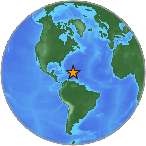PROTECT YOUR DNA WITH QUANTUM TECHNOLOGY
Orgo-Life the new way to the future Advertising by AdpathwayA new autonomous underwater vehicle (AUV) has completed its first field test in ultra-deep waters near the Mariana Trench in the western Pacific, collecting data on previously unexplored polymetallic nodules.
Deep sea environments remain largely unexplored. The extreme depths, cold temperatures, high pressure and distance from shore all present major challenges to exploration.
US-based start-up Orpheus Ocean, a spin‑off from the Woods Hole Oceanographic Institution, has developed a small AUV able to withstand these hostile conditions, exploring depths and gathering data autonomously at up to 11,000 metres below sea level.
In a project led by the Ocean Exploration Cooperative Institute (OECI), based at the University of Rhode Island’s Graduate School of Oceanography, Orpheus Ocean’s UAV is being deployed in a deep sea deployment mission.
With support from the National Oceanic and Atmospheric Administration (NOAA), the Bureau of Ocean Energy Management and the US Geological Survey, the mission aims to collect seafloor data, observations and samples of the unique and remote areas of the deep sea.
The mission is particularly focused on regions that may contain polymetallic nodules. Having formed very slowly on the deep ocean floor over millions of years, these golf ball- to potato-sized nodules are known to contain high concentrations of valuable metals.
Due to their unique geochemical properties they are of interest not only to marine scientists but deep-sea mining companies.
Adam Soule, professor of oceanography at the University of Rhode Island and OECI executive director, said: “It is critical to collect the data that allows us to understand the distribution of deep sea mineral deposits and the unique ecosystems associated with them.”
A field test of Orpheus Ocean’s AUV has been completed east of the Mariana Trench, the deepest known part of the world’s oceans.
The AUV was taken to this location on board Ocean Exploration Trust’s expedition platform exploration vessel, Nautilus.
From this vessel, the AUV successfully completed several dives to depths exceeding 5,600 metres, including capturing images of polymetallic nodules on the seafloor. This marked the first direct observations that ever have been made of these sites.
Aurora Elmore, NOAA Ocean Exploration programme manager, said: “In order to responsibly manage the deep sea and its resources, we must leverage public-private partnerships and emerging technologies to gather critical baseline information about the seafloor.”
Jake Russell, CEO and co-founder of Orpheus Ocean, said: “Orpheus Ocean prioritises work with government, research institutions and other groups dedicated to advancing science, conservation and understanding of the deep ocean, and this expedition is a great example of that.”
At the end of 2024, Norway postponed controversial deep-sea mining plans amid environmental backlash.






















 English (US) ·
English (US) ·  French (CA) ·
French (CA) ·